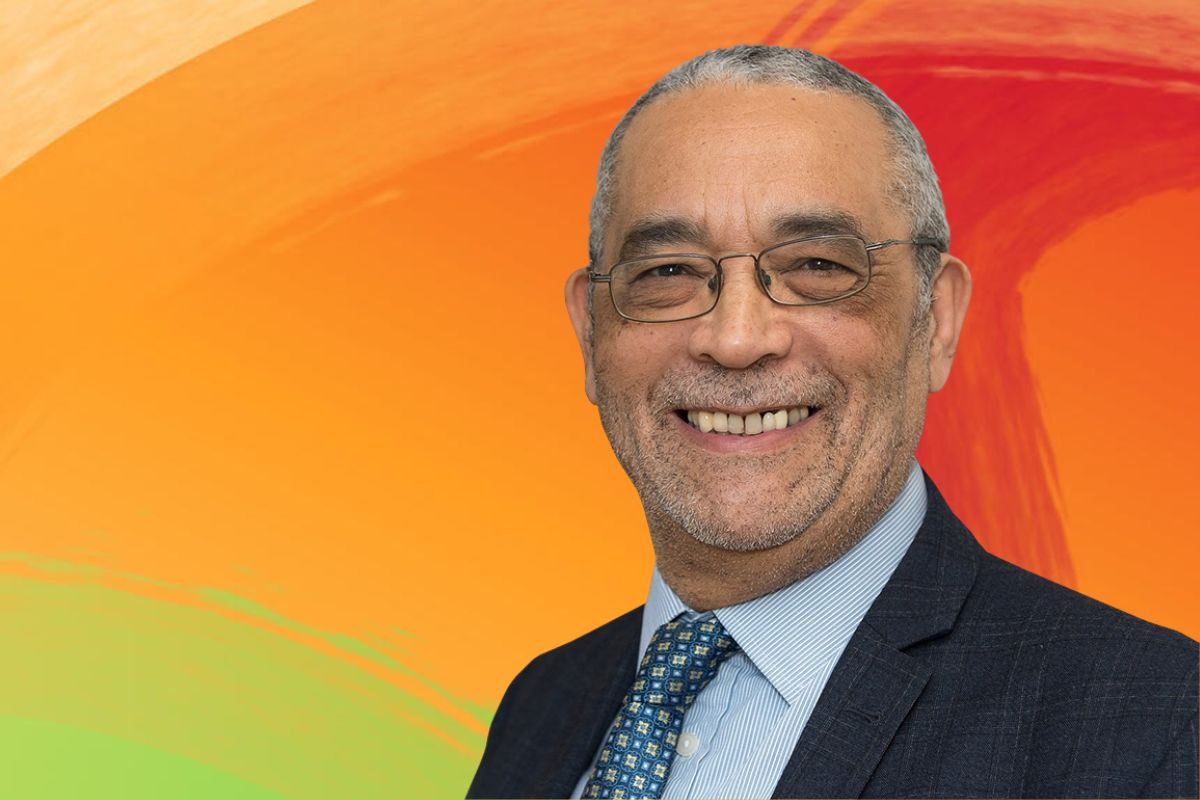Upgrade English for Speakers of Other Languages (ESOL) provisions to supercharge skills, says new report

A new report by the Lifelong Education Commission argues that enhancing English for Speakers of Other Languages (ESOL) in the UK could be key to tackling national skills gaps and shortages. The research comes at a time when the country is facing acute skills crises in many sectors, which is constraining growth and productivity.
Fortunately, there is a ready source of skilled workers available: migrants already in the UK. In 2021, it is estimated that nearly 10 million people (16% of the UK population) were born overseas. However, many migrants and asylum seekers are held back by their lack of English Language proficiency, especially in speaking and writing abilities that are essential for high-skilled jobs.
Andy Forbes, Head of Development at the Lifelong Education Commission who authored the report, outlines his solution to this problem:
“In the face of an acute skills crisis in Britain, better provision of English for Speakers of Other Languages – ESOL – should be a key strategy for tackling skills gaps and shortages. In the UK, we have a growing pool of migrants, many of them skilled and experienced professionals, who are unable to access the labour market due to poor English proficiency. Greatly improving the delivery of ESOL is therefore the best way to tap this hidden reservoir of talent, and greatly improve economic productivity and growth in the process”
The LEC report’s headline ask is for the Department for Education (DfE) to an ‘ESOL Strategy for England’, which lays out plans for teaching, learning and ESOL as part of a national skills strategy. Importantly, it argues this Strategy should be “settlement-positive”; meaning it should enable the provision of free English language teaching to all those seeking citizenship after six months in the UK.
This would make it far more likely that those granted citizenship after this period could become economically self-sufficient much earlier, and contribute more quickly to filling the skills shortages currently holding the UK economy back.
Amongst the report’s other key recommendations are measures intended to improve the accessibility and delivery of English-language training:
- ESOL provision up to Level 2 should be fully funded across England for all refugees and asylum seekers, by making courses eligible for full fee remission
- Funding for ESOL courses up to and including Level 2 should be raised to enable the delivery of at least 360 hours of tuition per year
- Specific support funding for ESOL students, including Refugees and Asylum seekers, should be allocated to all providers, based on the numbers of ESOL students enrolled
- Access to HE courses tailored to the needs of ESOL students should be introduced, with loans for these courses written off if students’ progress to higher education
- It should be a requirement that ESOL for skills is considered as a specific strand in all Local Skills Improvement Plans.
- ESOL tuition should be offered in addition to vocational training in selected growth industries and industries with severe skills shortages
Launched on Friday at South Thames College in London, the research has been backed by multiple partners from across FE and HE; including Ascentis, Leicester College, NCG, New City College, South Thames Colleges Group, and WEA. They offer their comments below:
Jennie Turner, Group Curriculum Director for ESOL at New City College:
“This report from ResPublica recognises the enormous contribution migrants make to our society and economy and argues that English language is crucial to unlocking and developing the skills we need as a nation. A new call for an ESOL Strategy for England addressing ESOL for Skills as well as social cohesion and integration is timely and the recommendations for funding and support for progression are crucial. I welcome this report and trust that it will inform future policy for ESOL in England”
Simon Parkinson, CEO of the WEA:
“We see ESOL as a key part of our mission as it supports learners to take greater control over their lives and be more connected to their local communities. More than any other type of course, ESOL brings together groups of learners with diverse backgrounds, varied ambitions and motivations and specific support needs. This is why we welcome the Lifelong Education Commission report, which asks important questions about ESOL’s role in supporting learners to work and contribute to the economy – an aspect of ESOL often overlooked”
Peter Mayhew-Smith, Group Principal and CEO of South Thames College Group:
“We’re delighted at STCG to sponsor a report of this quality and depth, shedding light on the immense value of the work done by ESOL teachers in supporting their students to develop the language and other skills. We know the huge untapped potential of non-native speaking communities in London and recognise the risks of isolation and disengagement that arise if we don’t have well-resourced and high quality ESOL programmes available. We committed advocates of this work and glad the report recognises its importance.”
Graham Harwood, Strategic Partnerships Manager for Ascentis:
‘”his report highlights that immigration is a positive force in driving innovation, entrepreneurship and growth. A decisive move towards a much more proactive and positive attitude towards migrant talent is needed. The report concludes that the supply and demand for ESOL to support vocational skills improvement and availability of sufficient high quality ESOL provision, from essential to advanced is an integral part of skills plans; and recognise that ESOL is a distinct discipline, with distinct course design and teaching”
Verity Hancock, Principal and CEO of Leicester College:
“As a leader in a College based in what is now referred to as a ‘super-diverse’ city, in which 25% of adults have no qualifications and many thousands speak English as a second language or not at all, I embrace this report as a CRITICAL contribution to the skills debate. Upwards of 8,000 people a year pass through Leicester College’s ESOL programmes for young people and adults, gaining vital language and citizenship skills as they go, preparing successfully for further education and employment. ESOL is an essential element of the skills journey, and this timely and well-evidenced report illustrates why it must be properly funded and delivered by professionals who are experts in their field. Our students, who will form an important part of the workforce across the country, deserve nothing less”
Liz Bromley, CEO of NCG:
“As a national college group, our seven colleges work together with their communities to address local and national skills shortages and build the workforce of the future. Unlocking the potential of refugees and asylum seekers through our ESOL provision is a key part of this. Supporting the refugee and asylum seeker community, who have a multitude of skills and talent, is integral to our role as educators. However, the growing demand for our ESOL courses, combined with consistent cuts to funding, unfair funding rules and a lack of national strategy, makes it extremely difficult for us to provide this vital education to everyone who needs it.
NCG’s own initiative ‘Our Community is Your Community’, aims to ensure our colleges are welcoming and supportive places for those seeking refuge in our local areas, helping them find work and purpose, and is aligned to this report in its purpose to make ESOL education fairer, more accessible and able to provide refugees with the opportunities they need to create a full life, including finding work and contributing to our country”
Read the report here!











Having worked with and supported many migrants, a course run for those who wished to undertake teacher training highlighted the fact that such new entrants needed much more support, whether in voluntary roles working where they could develop speaking skills was most important.
those I worked with said they were happy to do voluntary work if they could find support to do this and many families set up own businesses to develop speaking and writing, as soon as they could find free courses, that were cut from funding, for some time…. Short term planning costs more in the long run. Access to good literacy classes, Functional Skills as well as employability skills for all newcomers is essential for those in a front of house and service occupations.